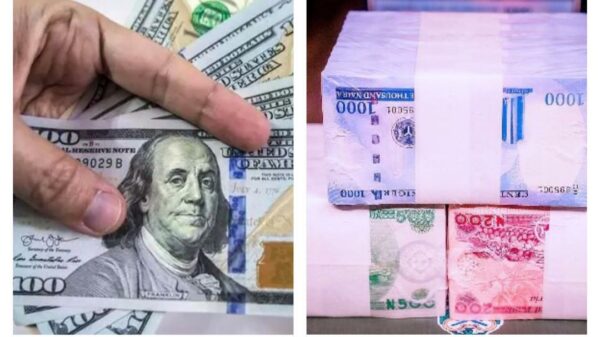People’s Bank: How Tai Solarin Gave Corruption a Black Eye By Tunji Light Ariyomo, FNSE
There is a fable spreading like a wildfire on social media to the effect that Dr. Tai Solarin’s acceptance to serve as the Chairman of the People’s Bank of Nigeria (PBN) under the self-styled military president, General Ibrahim Babangida (IBB), was an opportunity for the latter to prove to Solarin that it was difficult to govern millions of people. The viral message went as far as indicating that the military dictator, out of his magnanimity, thereafter decided not to prosecute Tai Solarin.
Everything written in that piece is however sheer fable concocted to mislead. The piece has no iota of truth. The fact of our history is that IBB appointed Mrs. Maria Shokenu as the pioneer Managing Director of the People’s Bank. The military president also appointed Dr. Tai Solarin as the pioneer Chairman of the Governing Board of the Bank, as the sterling reputation of the latter was needed by the military junta to garner credibility for itself and the bank. The Bank granted loans to over 240,000 customers. The Research Directorate, Immigration and Refugee Board, Canada, put this figure at 245,000 (UNHCR, 1996).
The Solarin-led Board however discovered that senior officials of the People’s Bank were gravely implicated in financial malfeasance and “corruption scandal” (AFP 17 Jan. 1992). Effectively, those officials mismanaged the fund, subverted due process, connived with bank customers to perpetrate fraud, and sabotaged the objective of the fund which was primarily to sustainably cater to the credit needs of the poor and the underprivileged without the stringent conditions and costly red tape associated with traditional banking. Tai Solarin’s Board identified and indicted culpable officials and took decisive actions to sanction them in order to prevent a slide into the abyss. The Board was however vehemently resisted.
Solarin thereafter wrote strongly worded recommendations to the IBB-led Federal Government through the Minister of Finance that the culprits should be sanctioned as a way of arresting the drift and restoring administrative discipline and financial probity in the governance of the Bank. Essentially, Solarin wanted the management held to account. The Finance Minister and IBB however ignored the recommendations and the malfeasance continued unabated.
Following persistent brick walls mounted by the topmost hierarchy of the military government against probity and their seemly culpable inaction against the demand for accountability in the Bank, Tai Solarin became frustrated. He subsequently resigned “in protest at the government’s delay in bringing to book those senior bank officials” that aided and abetted the crimes (please see FBIS-AFR-92-005 8 Jan. 1992, pp. 28-29).
In retrospect, Tai Solarin was an extraordinary man. People do not usually resign in Nigeria on moral grounds. He did. The reader needs no soothsayer to understand what the fate of People’s Bank could have been had probity and accountability allowed to form the cornerstone of that Bank as the Board under Tai Solarin demanded. Similar circumstances persist today with near similar responses thereby calling to question the capacity of Nigeria to learn from her past follies. A governing board recently denied any knowledge of a multi-billion dollar railway project being spearheaded by its management. No consequences from higher authorities. Even the media response was perfunctory – the result of being numbed to the scandalous alarms that such bizarre actions ought to elicit.
The revisionist story being peddled on litserve in the case of Tai Solarin is meant to serve only one purpose: to re-cast the roles of the evil locusts that pushed Nigeria down the abyss as nothing more than normal and that redemption is futile. That is, Nigeria’s problems are insurmountable, and people should stop criticizing governments, etc. The fact that it gained traction and is spreading like wildfire despite the outright falsehood and appalling theme it evokes speaks to a sinister consensus that a sizable majority appear to be happy with the false ethos that redemption is futile or that everyone should simply understand and accept mediocrity, wanton corruption, etc as the inevitable fate of Nigeria and end the agitation for excellence and paradigm shifts towards globally acclaimed higher standards.
Gbenga Ilugbo appropriately captured the plot when he stated that the people peddling this rumour have their objective. One being to paint a picture of an irredeemable Nigerian state and project a purported fallibility as well as a supposed futility of upright men who fought with their tooth, nail, skin and blood against corruption. I dare say that this appears to be part of a whole scale mind-conditioning scheme. The subliminal message is being spread subtly and innocently to pollute the hearts and minds of the younger generation: that living above board is not edifying, that expecting national wealth to be prudently targeted at national wellbeing is an unrealistic pursuit, that probity and fidelity to the primary goals of organizations is unrealizable, and dangerously; that criticism is pointless as the black man has a lower standard to aspire to as part of the world experience compared to his counterparts elsewhere.
The purveyors of the rumours are however wrong. The opposite is true in civilization: criticism will keep a good government on its toes, make that government accountable and bring the best out of its key players. Even a government with substantial evidence of doing good still requires criticism to do better. After all, the eternal statement of Helmut Schmidt that “the biggest room in the world is the room for improvement” remains the standard by which great leaders continue to seek improvements through innovations. Criticisms should however be differentiated from the caterwauling belligerency that we see on display among many today. Fabrication of lies and unfounded innuendoes, especially by highly partisan individuals, to damage the reputation of others, is not criticism. That’s vendetta. That’s hate. If it is defamatory or libelous, it should indeed remain a criminal offense.
In the case of Tai Solarin, he objectively criticized the governments of his day. He was taunted and offered a position to cater to the poor. He accepted the challenge. The government then employed his very lieutenants to sabotage his work. Rather than kowtowing to that evil as the new normal and joining them to swim in the filthy lucre, he acted promptly and demanded probity and sanctions. When his directives to rein in the culprits were undermined, he escalated the situation to his superiors in government. When those above him refused to act, he resigned. That was the right thing to do. By that action that was clearly above board, Tai Solarin gave Nigerian corruption an uppercut. He gave corruption a black eye.
Dr. Tai Solari resigned honorably and remained unblemished. His resignation was not because the task was too big for him or because he came to the epiphany that the government should be pitied for dealing with a bigger number of officials than he dealt with at the PBN. No. Rather, his resignation was triggered by the military administration’s apparent shielding of looters of the People’s Bank. Now, that is a historical fact.
The distortion being peddled to make the Babangida’s military look good is the kind of thing that stifled our growth and development in Africa – the canonization of evil and denunciation of saints. If you have helped to share the lies, I put it to you that you are an accessory after criminal defamation of a hero and deification of a nefarious villain.
References:
Please read publicly available reputable news bulletins such as:
Agence France Presse (AFP) [Paris, in English]. 17 January 1992. “New Chairman of People’s Bank Appointed.” (FBIS-AFR-92-020 30 Jan. 1992, pp. 26-27).
7 January 1992. “People’s Bank Chairman Resigns Over Corruption.” (FBIS-AFR-92-005 8 Jan. 1992, pp. 28-29).







